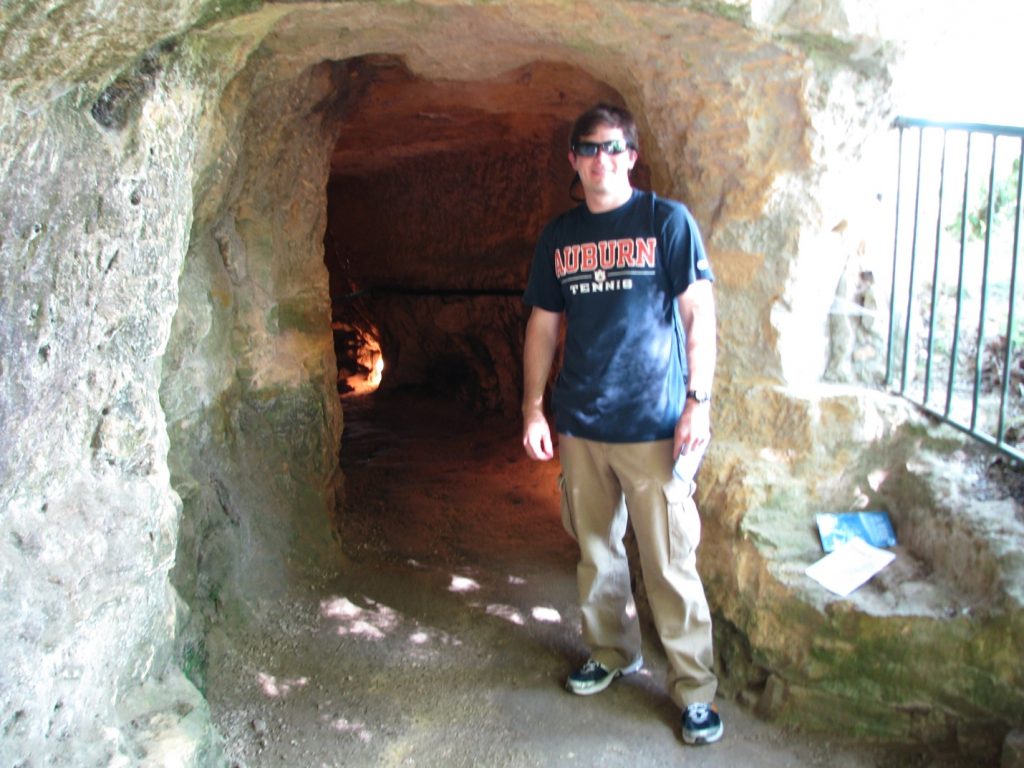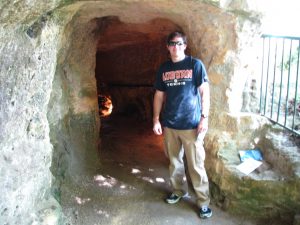
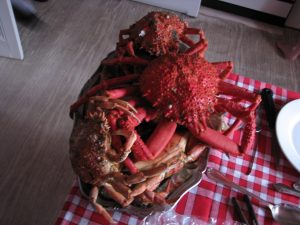 Having spent my entire life in small-town Alabama, I had plenty of exposure to the sort of things that people typically associate with southern culture. I grew up hunting, fishing, eating fried okra and grits—you name it. The cousins and family I knew all spoke with Southern accents, and embraced the slower laid-back pace of the region. But there was another side of my life that I was curious about. My mother and grandmother used to show me old pictures of France, and of my great grandfather and his family, who were originally from France before the family moved to the U.S. These things piqued my curiosity from a young age and led me to study French in High School and later on when I got to Auburn. There were things that I wanted to see. There were cities across the Atlantic where my ancestors had lived. There was a battlefield near a city called Verdun where my great grandfather had earned a medal as a French soldier fighting the Germans in WWI. The pictures and stories had planted a seed. That seed had grown into a desire to venture out and to discover the very roots to which it owed its existence. Regardless of how American I was, France was part of my ancestry, and I developed a yearning to experience it. Auburn Abroad’s summer program a L’Institut Catholique de Paris afforded me that opportunity.
Having spent my entire life in small-town Alabama, I had plenty of exposure to the sort of things that people typically associate with southern culture. I grew up hunting, fishing, eating fried okra and grits—you name it. The cousins and family I knew all spoke with Southern accents, and embraced the slower laid-back pace of the region. But there was another side of my life that I was curious about. My mother and grandmother used to show me old pictures of France, and of my great grandfather and his family, who were originally from France before the family moved to the U.S. These things piqued my curiosity from a young age and led me to study French in High School and later on when I got to Auburn. There were things that I wanted to see. There were cities across the Atlantic where my ancestors had lived. There was a battlefield near a city called Verdun where my great grandfather had earned a medal as a French soldier fighting the Germans in WWI. The pictures and stories had planted a seed. That seed had grown into a desire to venture out and to discover the very roots to which it owed its existence. Regardless of how American I was, France was part of my ancestry, and I developed a yearning to experience it. Auburn Abroad’s summer program a L’Institut Catholique de Paris afforded me that opportunity.
Having gained a decent mastery of the French language in my courses at Auburn, I elected to participate in Auburn’s Summer Abroad program in Paris the summer after my sophomore year. It turned out to be a fabulous experience for a number of reasons. I made some lifetime friends with my fellow Auburn Tigers who came along on the trip. We grew close tackling the new cultural encounters, learning the language, 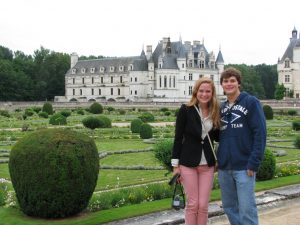 learning how to use the metro, and getting a feel for how to navigate the beautiful city of Paris.
learning how to use the metro, and getting a feel for how to navigate the beautiful city of Paris.
The program also allowed me to get my bearings in France and grow comfortable speaking the French language before I set out on my own to reconnect with the roots that my family had left behind several generations before.
That reconnection was probably the next most important thing that I took away from the trip. The program I participated in was invaluable to me in that it helped me build confidence in areas that were far from my comfort zone, such as using public transportation or safely evading tourist traps, like the friendship-bracelet vendors at Montmartre.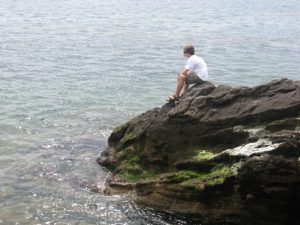
These were all things that I’d never been exposed to where I was raised. In addition, the food was devilishly tempting the entire time I was there. I have never eaten so well for so many days in a row. By the end of the program, I would have to exercise major will-power to keep myself from stopping yet again a La Boulangerie that was on my way to class for some Pain aux raisins (raisin-bread pastry). However, as I mentioned, the program was invaluable to me as a launchpad for the personal expeditions I undertook after the classes finished.
Feeling confident now, in my new knowledge of French language and culture, I took a train away from Paris after the last day of classes and did a bit of my own exploring. I travelled to Normandy and Brittany, both provinces along the coast and visited towns like Le Havre, Honfleur, Cancale, and St. Malo where my ancestors had resided. It was in Cancale that I enjoyed an incredible seafood feast of crab and some of the best raw oysters I have ever tasted.
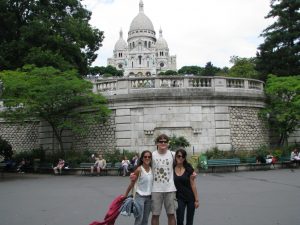 I even had the opportunity to visit my great grandfather’s grave in Le Havre. Along the way I visited the D-Day beaches and sites like Le Mont Saint Michel that blew my mind. From Normandy, I took a train to Verdun and saw the colossal battlefield where one of my ancestors had struggled alongside his countrymen against the Germans in a contest of epic proportions. It was so rewarding for me to be able to connect with this entire side of my family history that I might never have known without my decision to study abroad with Auburn.
I even had the opportunity to visit my great grandfather’s grave in Le Havre. Along the way I visited the D-Day beaches and sites like Le Mont Saint Michel that blew my mind. From Normandy, I took a train to Verdun and saw the colossal battlefield where one of my ancestors had struggled alongside his countrymen against the Germans in a contest of epic proportions. It was so rewarding for me to be able to connect with this entire side of my family history that I might never have known without my decision to study abroad with Auburn.
After Verdun, I hopped on yet another train and headed for a town in the center of France called Sarlat, where I was able to visit some prehistoric caves and view the paintings of prehistoric humans on the walls of caves in the Lascaux area. Additionally, I explored the narrow ledges of La Roque Saint-Christophe, which was employed by humans as a shelter from prehistory all the way through the Renaissance.
When I finally boarded my flight to return home, though I regretted leaving, I was overcome by a sense of fulfillment. I had been able to tangibly connect with a place and a culture that, though I had never before experienced them, had shaped who I am without a doubt. I have sometimes heard that people will better know where they are going if they know where they came from. If that is true, then I am very glad that Auburn Abroad helped me get to know my roots. I know for certain that I’ll be returning to France soon enough.
— Kevin Bufford
